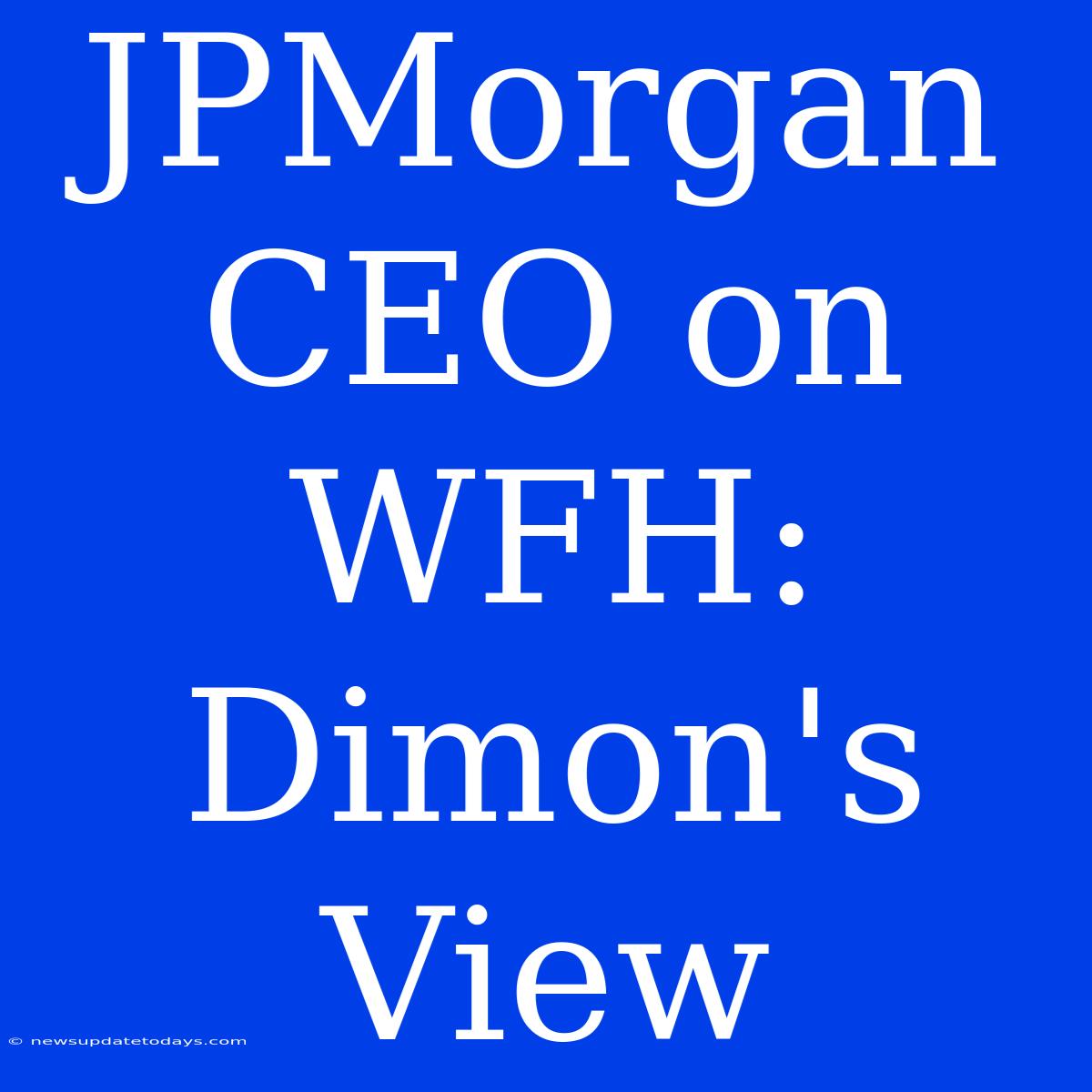JPMorgan CEO on WFH: Dimon's Blunt Assessment of Remote Work
Jamie Dimon, CEO of JPMorgan Chase, has never been shy about sharing his opinions, and his stance on working from home (WFH) is no exception. His views, often described as blunt and traditional, have sparked considerable debate in the business world. This article delves into Dimon's perspective on remote work, examining his arguments and the broader implications for the future of work.
Dimon's Criticism of WFH: A Traditionalist's Standpoint
Dimon consistently expresses skepticism towards widespread WFH. He argues that it hinders the crucial aspects of workplace collaboration, mentorship, and the overall learning environment. He believes that the spontaneous interactions and informal knowledge sharing that occur in a physical office are irreplaceable for employee development and overall company success.
Key arguments often cited by Dimon include:
- Reduced mentorship and learning: Young employees, in particular, benefit from observing and learning from senior colleagues in a physical office. WFH limits these opportunities, potentially stunting career growth.
- Diminished collaboration and innovation: The creative spark often arises from impromptu discussions and brainstorming sessions, which are challenging to replicate in a remote setting.
- Weakened company culture: A strong company culture is built on shared experiences and face-to-face interactions, which are significantly reduced with remote work.
- Increased operational challenges: Managing a fully remote workforce presents significant logistical and security concerns for a large organization like JPMorgan Chase.
The Counterarguments and the Nuances
While Dimon's stance is well-known, it's crucial to acknowledge the counterarguments. Many companies have successfully transitioned to remote or hybrid work models, boosting employee satisfaction and productivity. The pandemic forced a rapid shift to remote work, demonstrating its feasibility for various roles.
Moreover, Dimon's views are arguably shaped by the nature of JPMorgan Chase's business. A large financial institution requires a degree of in-person collaboration and oversight, especially in certain areas. His perspective might not be directly applicable to all industries or company structures.
The Future of Work: Finding a Balance
Dimon's perspective highlights the ongoing debate surrounding the optimal work arrangement. The future of work likely lies in finding a balance—a hybrid model that incorporates the benefits of both in-office and remote work. This could involve a flexible approach, allowing employees to work remotely part-time while maintaining regular in-office presence for crucial collaboration and team-building activities.
The key takeaway is that there’s no one-size-fits-all solution. The ideal work model will likely vary significantly depending on the industry, company culture, and the specific roles within an organization. Dimon’s vocal opposition to widespread WFH provides a valuable, albeit controversial, contribution to this ongoing conversation.
Conclusion: A Necessary Debate
Jamie Dimon's views on WFH offer a valuable counterpoint to the increasingly popular embrace of remote work. While his arguments might not resonate universally, they force a critical examination of the potential downsides of widespread remote work and the importance of considering the specific needs of different industries and companies. The debate continues, and finding the right balance remains a crucial challenge for businesses in the evolving landscape of the modern workplace.

